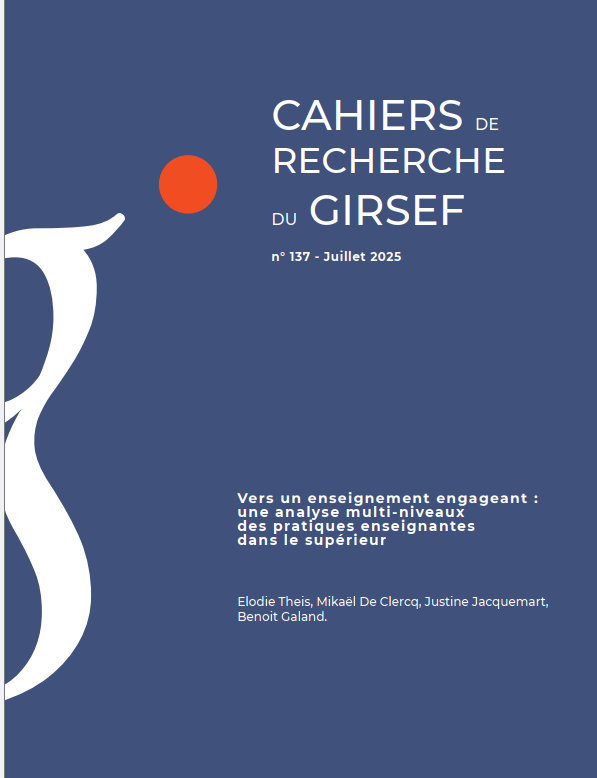No 137 (2025)

Résumé
L’enseignement supérieur est aujourd’hui confronté à un désengagement croissant des étudiants envers leur formation, comme en témoigne la baisse importante de la fréquentation des cours. Plusieurs modèles soutiennent l’idée que les pratiques enseignantes en classe pourraient constituer un levier pour favoriser l’engagement des étudiants. Cependant, les études permettant de tester cette hypothèse sont très rares dans l’enseignement supérieur. Pour pallier cette limite, cette étude quantitative, menée auprès de 15 enseignants et 664 étudiants en Belgique francophone, a analysé le rôle de quatre catégories de pratiques enseignantes sur six aspects de l’engagement étudiant. Les analyses multi-niveaux montrent que la structuration des apprentissages est positivement associée à l’engagement émotionnel et cognitif des étudiants. L’activation cognitive jouerait un rôle dans l’engagement cognitif mais menacerait l’engagement émotionnel et comportemental. Le soutien socio-affectif serait lié à l’engagement émotionnel et cognitif. La gestion de classe soutiendrait principalement l’engagement comportemental. Les implications des résultats et leurs limites sont également discutées.
Summary
Higher education is facing a growing student disengagement, characterized by a significant decline in course attendance. Several models suggest that classroom teaching practices can enhance student engagement. Yet, studies measuring the actual impacts of these practices are too scarce. To fill this gap, this study conducted with 15 teachers and 664 students, analyzes the role of four categories of classroom teaching practices, on six indicators of engagement. The multi-level analysis highlights that provision of structure would encourage both emotional and cognitive engagement of students. Cognitive activation would play a role in students’ cognitive engagement but might threaten emotional and behavioral engagement, while socio-affective support would support emotional and cognitive engagement. Classroom management would mainly support behavioral engagement. The implications and limitations of these findings are also discussed.



